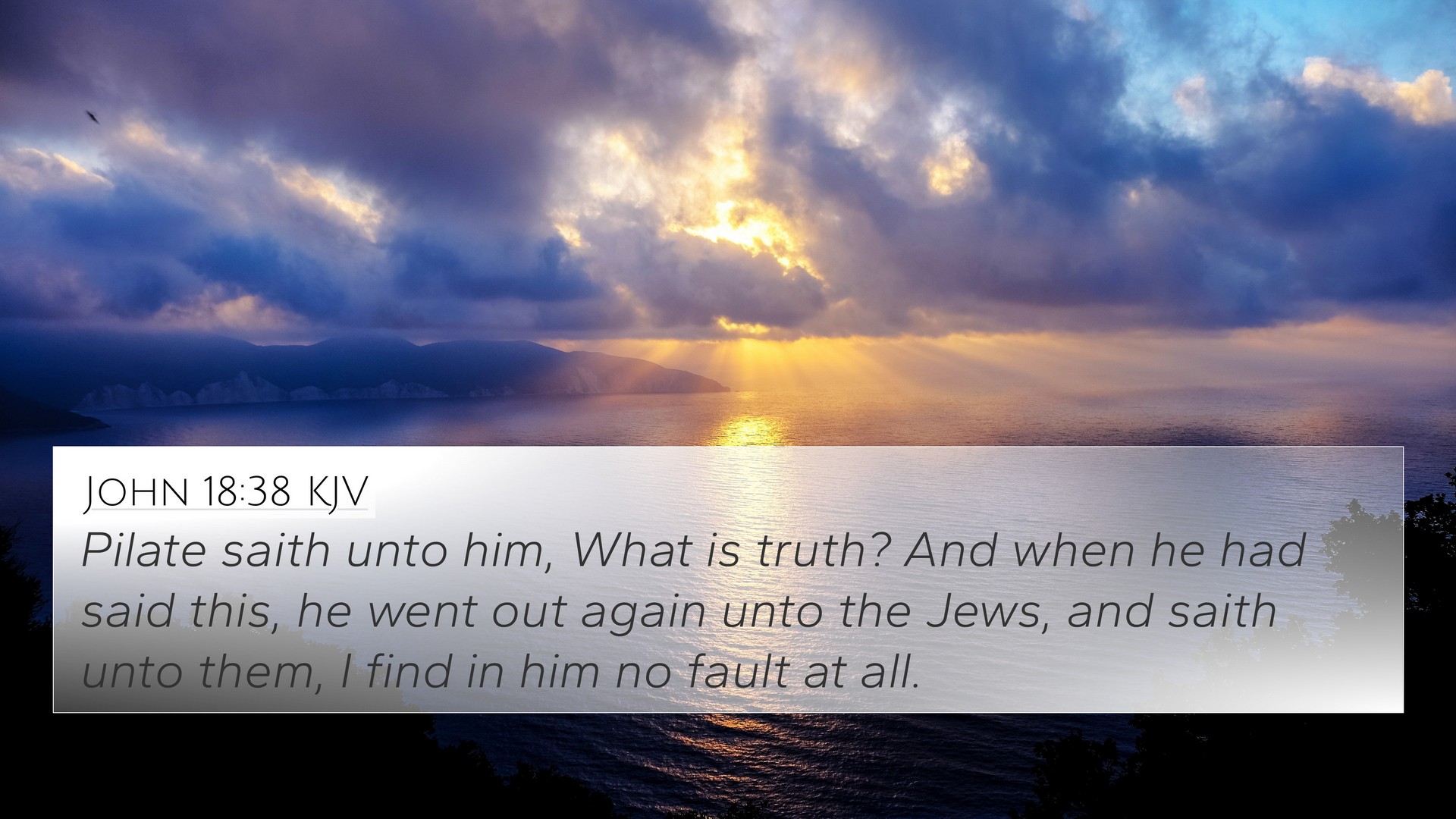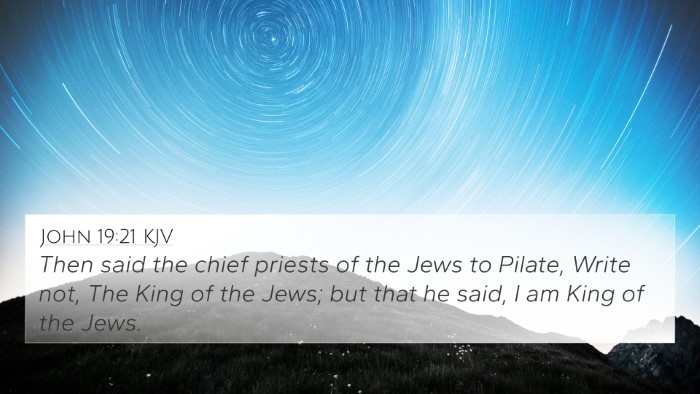Understanding John 18:38
John 18:38 captures a significant moment in the trial of Jesus, as Pilate, the Roman governor, questions Him about truth. The verse states:
"What is truth?"
This question reveals Pilate's skepticism and represents a broader inquiry into the nature of truth itself, especially concerning the claims of Jesus as the Messiah and the implications of His teachings.
Summary of Insights
Combining insights from various public domain commentaries, we gain a deeper understanding of this verse:
- Matthew Henry: Henry emphasizes the gravity of Pilate's question, noting that it reflects a philosophical dilemma prevalent in society. Pilate's doubt contrasts sharply with the unwavering testimony of Jesus, who embodies truth.
- Albert Barnes: Barnes highlights that Pilate's inquiry is both literal and metaphorical, illustrating a leader caught between political expediency and moral clarity. More so, he interprets this moment as pivotal, where Pilate is confronted with the ultimate expression of truth standing before him.
- Adam Clarke: Clarke elaborates on the concept of truth in the context of Jesus’ mission. To Clarke, Pilate's inability to recognize truth signifies the darkened understanding of those who are spiritually blind, further complicating the human condition in relation to divine revelation.
Cross-References Related to John 18:38
This verse can be connected to several other Scriptures that deepen our understanding of truth and its implications in faith and society:
- John 14:6: "I am the way, the truth, and the life." This verse reflects Jesus' declaration of Himself as the embodiment of truth.
- John 8:32: "And you shall know the truth, and the truth shall set you free." This shows the liberating power of truth found in Christ.
- Psalm 119:160: "The entirety of Your word is truth." This verse emphasizes the foundational nature of God's word in understanding truth.
- Romans 1:25: "They exchanged the truth of God for a lie." This illustrates the human tendency to abandon truth in favor of deceit.
- Ephesians 6:14: "Stand therefore, having girded your waist with truth..." This verse underscores the importance of truth in spiritual warfare.
- 1 Timothy 2:4: "Who desires all men to be saved and to come to the knowledge of the truth." This highlights the desire for all to know the truth of the Gospel.
- 2 Thessalonians 2:10: "With all unrighteous deception among those who perish, because they did not receive the love of the truth..." This speaks to the consequences of rejecting the truth.
Thematic Connections
The theme of truth, as illuminated in John 18:38, resonates through various Biblical texts. It invites believers to seek a profound understanding of truth and to engage in theological reflection and discourse. In attempting to grasp this profound question posed by Pilate, we are called to consider:
- The nature of truth: Truth as absolute versus subjective interpretations.
- The role of Jesus: Beyond just His words, His essence as truth changes the narrative of the human experience.
- Social Responsibility: The consequences of political and moral choices in light of truth.
- Personal Reflection: How do individuals confront and embody truth in their own lives?
Tools for Bible Cross-Referencing
For those seeking to delve deeper into the Scriptures and understanding connections between Bible verses, consider using the following resources:
- Bible Concordance: A reference tool that helps in identifying where specific words or topics appear in Scripture.
- Bible Cross-Reference Guide: Materials that present sophisticated connections between various verses across both testaments.
- Bible Chain References: A linking system that allows readers to follow themes or ideas throughout the Bible.
- Comprehensive Bible Cross-Reference Materials: In-depth studies and guides for sermon preparation and theological research.
Conclusion
John 18:38 serves as a powerful reminder of the complexities surrounding the concept of truth within the Christian faith. By integrating insights from commentaries and employing tools for cross-referencing, believers can enhance their understanding of this pivotal scripture and its broader implications within Biblical theology.















